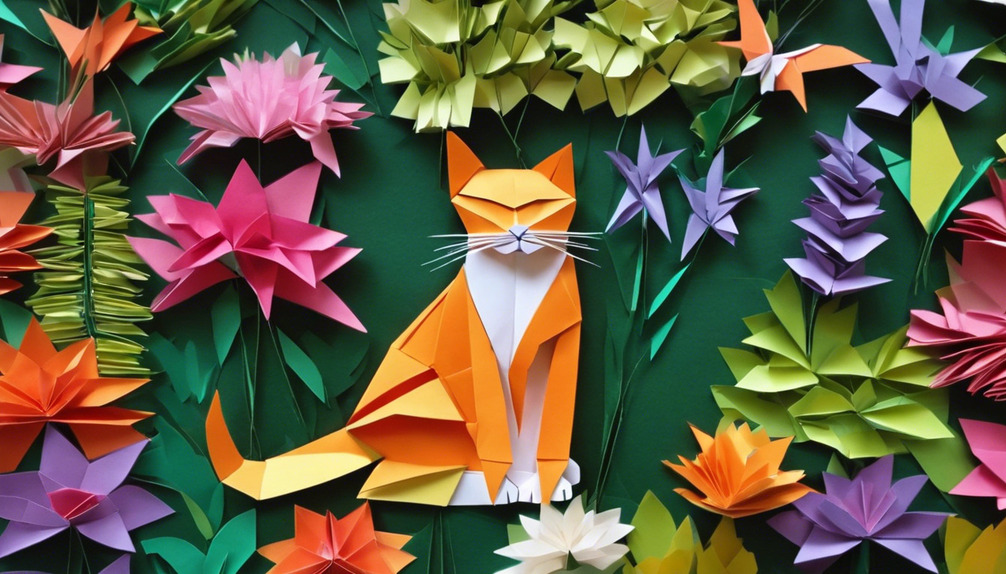As your senior cat gracefully enters their golden years, it’s natural to want to ensure their comfort and well-being. Use a set of natural remedies to provide mild relief and support for urinary health.
You want to provide the best care possible, and sometimes that means exploring natural aids to alleviate urinary problems. But where do you start? What are these natural aids, and how can they help your senior cat?
Let’s uncover the secrets to supporting your cat’s urinary health in the most natural and nurturing way possible.
Key Takeaways
- Cranberry supplements and D-Mannose may improve cats’ urinary tract health and help prevent UTIs, but consult a vet before use.
- Nettle leaf, marshmallow root, and cornsilk may enhance urinary health in elderly cats due to their anti-inflammatory benefits. Always consult a veterinarian before adding these natural supplements.
- Cornsilk may benefit a senior cat’s urinary health by reducing discomfort and preventing infections due to its anti-inflammatory properties. Consult a veterinarian for proper dosage and administration.
- Pumpkin seed extract and omega-3 fatty acids can enhance urinary health in senior cats by offering relief, supporting normal function, and reducing inflammation. Choosing Vets Best brand food may also aid in maintaining urinary tract health.
Cranberry Supplements for Cats
If your senior cat is experiencing urinary problems, consider incorporating cranberry supplements into their diet to support their urinary tract health.
As a cat owner, it can be distressing to see your cat struggle with urinary issues. Cranberry supplements, containing natural ingredients like cranberry and parsley leaf, are specifically designed to promote urinary health in cats.
The cranberry fruit aids in flushing out wastes from the body, supporting the overall well-being of your beloved pet. These supplements, available as chewable tablets or in a form that can be mixed with food, offer a convenient way to provide essential support for your cat’s urinary tract.
It’s important to remember that while these supplements can be beneficial, consulting a veterinarian before making any dietary changes or starting new supplements for your cat is crucial. Your cat’s well-being is of utmost importance, and by considering cranberry supplements, you’re taking a proactive step to support their kidney and urinary health, ensuring they have the best possible quality of life.
D-Mannose for feline UTIs
Consider incorporating D-Mannose, a natural remedy that can help prevent and treat feline UTIs, into your senior cat’s diet to support their urinary tract health. Feline UTIs can cause discomfort and pain for your beloved pet, and urinary tract issues can be particularly common in senior cats. D-Mannose works by preventing harmful bacteria from adhering to the walls of the urinary tract, helping to maintain urinary health and prevent infections. It’s a safe option for long-term use, and there are no known side effects, making it a gentle yet effective aid for your cat’s urinary problems.
Feline Idiopathic Cystitis, urinary obstruction, and kidney stones are all serious conditions that can affect your cat’s urinary system, and incorporating D-Mannose into their diet may help reduce the risk of these issues. The recommended dosage for cats is 1/8 teaspoon of D-Mannose powder per day, but it’s crucial to consult your veterinarian before starting any new supplement for your cat.
Your cat’s comfort and well-being are paramount, and by considering D-Mannose as a natural aid for their urinary health, you’re taking a proactive step in supporting their overall wellness.
Nettle Leaf for Urinary Health
As you continue to prioritize your senior cat’s urinary health, exploring natural aids such as nettle leaf can provide holistic support for their overall well-being. Nettle leaf offers several benefits for your cat’s urinary tract, bladder, and kidney health:
- Reduced Inflammation: Nettle leaf can help reduce inflammation in the urinary tract, providing relief for any discomfort your senior cat may be experiencing.
- Supports Kidney Function: It may support kidney function, aiding in the overall health of your cat’s urinary system.
- Natural Diuretic: Nettle leaf acts as a natural diuretic, aiding in the elimination of toxins from your cat’s body through increased urine production.
- Holistic Support: Using nettle leaf as a holistic approach to urinary problems in senior cats can provide a natural and gentle way to address any urinary issues they may be facing.
Considering the potential benefits nettle leaf offers, incorporating it into your senior cat’s care routine may help alleviate urinary problems and contribute to their overall well-being. Always consult with your veterinarian before introducing new supplements to your cat’s diet if they’ve existing health conditions or are taking medications.
Marshmallow Root for Senior Cats
Let’s discuss how marshmallow root can benefit older cats with urinary issues.
It has some great benefits for urinary health, and we’ll cover how you can easily administer it to your cat.
We’ll also touch on any potential side effects to keep an eye out for.
Benefits for Urinary Health
When supporting the urinary health of your senior cat, incorporating marshmallow root into their diet can provide gentle and natural relief, promoting comfort and overall well-being.
Here’s how marshmallow root benefits your cat’s urinary health:
- Soothing Properties: The natural anti-inflammatory properties of marshmallow root can help soothe and protect the urinary tract in senior cats, reducing pain and discomfort during urination.
- Supports Overall Urinary Health: Marshmallow root may aid in encouraging a healthy urinary tract and inhibiting infections, promoting overall urinary health in senior cats.
- Safe for Long-Term Use: This gentle herb is safe for long-term use in senior cats, promoting renal health and function without adverse effects.
- Promotes Urinary Comfort: Incorporating marshmallow root into your senior cat’s diet can aid in promoting urinary comfort, contributing to their overall well-being and health.
How to Administer
Supporting the urinary health of your senior cat with marshmallow root can be achieved through various administration methods, ensuring ease and effectiveness in providing relief and promoting comfort.
You can mix marshmallow root powder into your cat’s wet food or water, making it easier for them to consume.
Another method is to administer marshmallow root tincture directly into your cat’s mouth using a dropper or syringe.
If your cat is more receptive to capsules, you can sprinkle the contents onto their food.
Creating a marshmallow root tea by steeping the herb in hot water and adding a small amount to your cat’s wet food can be beneficial.
It’s important to seek guidance from a holistic veterinarian for the best administration method and proper dosage to ensure optimal urinary tract support for your feline friend.
Potential Side Effects
Understanding the potential side effects of marshmallow root for senior cats is important to ensure the well-being of your beloved cat. When considering using marshmallow root for urinary tract or bladder support in your senior cat, it’s crucial to be aware of the potential side effects. Here are some symptoms to watch for and factors to consider:
- Gastrointestinal Upset: Some senior cats may experience diarrhea or vomiting after consuming marshmallow root.
- Allergic Reactions: Cats with known allergies to plants in the mallow family should avoid marshmallow root.
- Skin Irritation: In rare cases, direct contact with marshmallow root may cause skin irritation in cats.
- Pre-Existing Health Conditions: Always consult with a veterinarian if your cat has a UTI, urinary issues, or underlying health concerns before introducing marshmallow root.
Being vigilant and informed about potential side effects will help you make the best decisions for your cat’s health.
Cornsilk for Urinary Tract Support
If your senior cat is experiencing urinary issues, you may want to consider cornsilk as a natural aid. It offers numerous benefits, such as promoting urinary health and easing painful urination.
Understanding how to administer it and being aware of potential side effects can help you make an informed decision about whether cornsilk is the right choice for your beloved cat.
Cornsilk Benefits
Considering the well-being of your senior cat, you may find that cornsilk offers natural support for their urinary tract health. It may help ease discomfort and promote urinary function, inhibiting infections and encouraging overall urinary tract health.
Cornsilk also provides long-term use and natural anti-inflammatory properties for senior cats. Incorporating this plant-based ingredient into your cat’s routine could potentially aid in maintaining their bladder and urinary health.
It’s important to consult with a vet to ensure that cornsilk is integrated safely and effectively for your senior cat’s urinary tract support. With its potential to alleviate urinary problems and support overall urinary health, cornsilk could be a valuable addition to your senior cat’s care routine.
How to Administer
To help support your senior cat’s urinary tract, consider using cornsilk in capsule or liquid extract form as advised by your veterinarian.
If using a capsule, simply open it and mix the cornsilk with your cat’s food or a treat.
For liquid extract, mix the appropriate dosage with the cat’s food or administer it directly into the mouth using a dropper.
It’s essential to ensure that your cat consumes the entire dose and monitor for any adverse reactions or changes in urinary behavior.
Remember to consult with your veterinarian for the correct dosage and administration method based on your cat’s specific condition and health status.
This gentle approach can help promote urinary tract health for senior cats prone to bladder infections, tract infections, or cats with kidney disease.
Consider incorporating cornsilk with wet food to support your cat’s urinary system and immune system.
Potential Side Effects
Be mindful of potential side effects when considering cornsilk as a natural aid for urinary tract support in your senior cat, as some cats may experience gastrointestinal upset or allergic reactions. Here’s what you should keep in mind:
- Medication Interactions: Consult with a vet before using cornsilk for your cat, as it may interact with certain medications.
- Sensitivity to Corn: Some cats may be sensitive to corn or corn-related products, so consider this before administering cornsilk.
- Overdosing Risks: Follow the recommended dosage to avoid potential adverse effects, as overdosing can be harmful.
- Monitoring Changes: Watch for any changes in behavior, appetite, or urination patterns when introducing cornsilk to support your cat’s urinary health.
It’s crucial to prioritize your senior cat’s well-being and to be attentive to any signs of discomfort or adverse reactions when using natural aids for urinary problems.
Pumpkin Seed Extract for Senior Cats
When considering natural aids for supporting your senior cat’s urinary health, incorporating pumpkin seed extract can provide valuable relief and promote overall urinary tract wellness. Senior cats often face urinary problems, including issues with the bladder and urethra, and incorporating pumpkin seed extract into their diet can help prevent these issues. As cat owners, it’s essential to support normal urinary function in our senior cats, and pumpkin seed extract offers a natural and gentle way to do so.
Pumpkin seed extract has natural anti-inflammatory properties that can help ease urinary discomfort in senior cats. It also supports normal urinary function, making it a valuable addition to a senior cat’s overall urinary health regimen. By incorporating pumpkin seed extract, cat owners can provide their senior cats with a natural aid that complements vet-recommended treatments for urinary problems.
This extract may help prevent the formation of stones in cats, promoting urinary tract health and overall well-being in senior cats.
Supporting your senior cat’s urinary health with pumpkin seed extract is a caring choice that can contribute to their comfort and quality of life.
Omega-3 Fatty Acids for Urinary Health
To support your senior cat’s urinary health, consider incorporating omega-3 fatty acids into their diet as a natural way to promote overall bladder and kidney function. Omega-3 fatty acids can be a valuable addition to your cat’s diet if your cat is experiencing urinary problems.
Here’s how omega-3 fatty acids can help support your cat’s urinary health:
- Anti-inflammatory properties: Omega-3 fatty acids have anti-inflammatory properties that can help ease discomfort in cats with urinary problems.
- Overall bladder and kidney function: These fatty acids support overall bladder and kidney function in senior cats, helping to maintain a healthy urinary system.
- Urinary tract lining: Omega-3 fatty acids can help maintain the integrity of the urinary tract lining in senior cats, promoting urinary health.
- Reduced uric acid: Incorporating omega-3 fatty acids into your cat’s diet can help reduce the formation of uric acid, which can contribute to urinary issues such as trouble urinating.
When selecting food for urinary tract health, consider Vets Best, a brand known for producing products that can aid in promoting urinary health for senior cats. Your cat will thank you for taking the extra step to ensure their comfort and well-being.
Frequently Asked Questions
What Is the Holistic Treatment for feline Lower Urinary Tract Disease?
When dealing with holistic treatment for feline lower urinary tract disease, you’ll find remedies like NHV herbal supplements and BestLife4Pets Natural Cat UTI Remedy. These options help soothe discomfort and promote urinary health in senior cats.
How Can I Treat My Cat’s UTI Without Going to the Vet?
You can’t treat your cat’s UTI without going to the vet. It’s crucial to get professional diagnosis and treatment. Untreated UTIs can lead to serious kidney infections. Your vet will recommend the best course of action for your cat’s health.
What Can I Give My Cat for Urinary Problems?
You can give your cat natural aids for urinary problems. Look for plant-based remedies for bladder infections, like NHV Natural Pet Products. Ensure they’re safe for your cat’s specific condition and consult your vet for proper diagnosis and treatment.
How Can I Acidify My Cats Urine Naturally?
Encourage your cat to drink more water and add cranberry supplements to their diet to naturally acidify their urine. Consider wet food and apple cider vinegar, and monitor their health and urinary pH levels with your vet.




